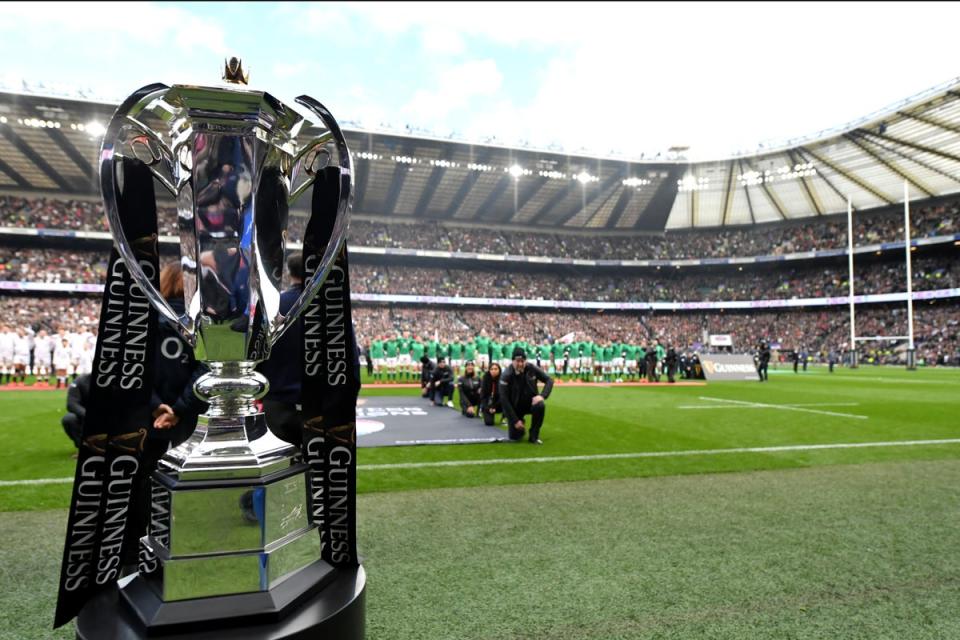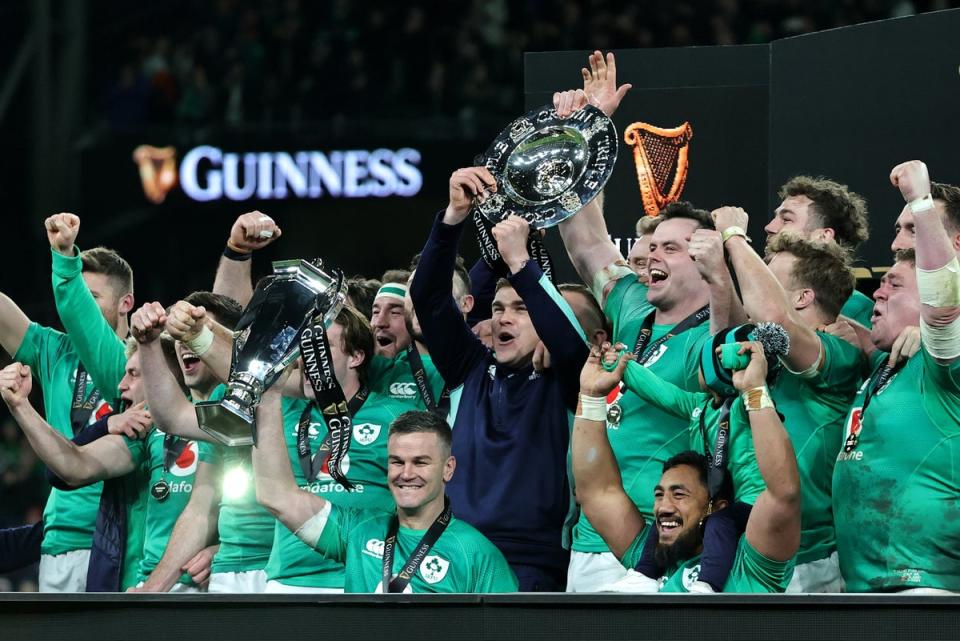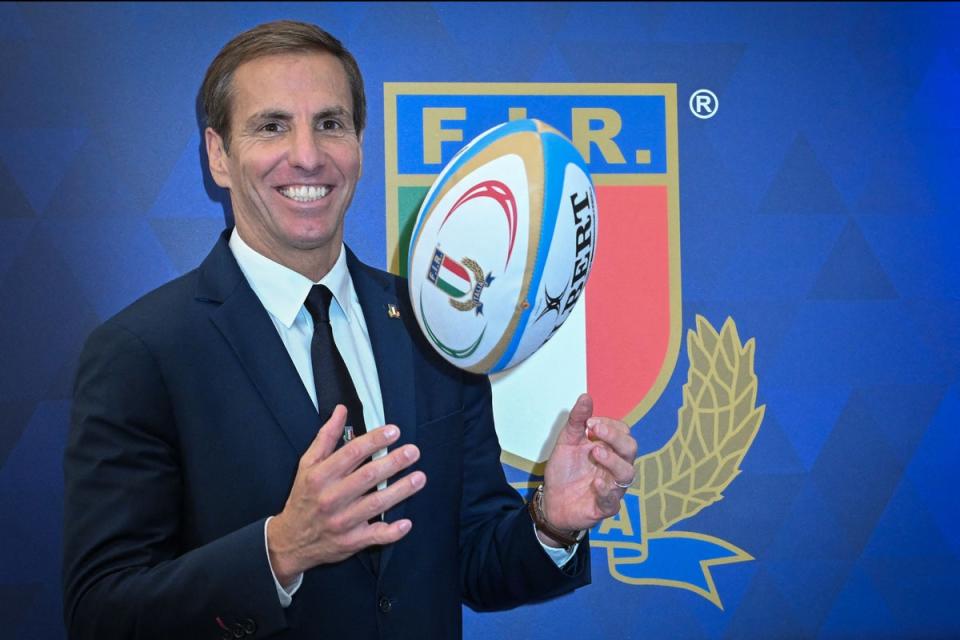Evolving Six Nations brings opportunity for all – but one certainty remains

Perhaps not since the Springtime of the Peoples in 1848 has this time of year promised such significant change across Europe. The Six Nations arrives with transformative winds blowing; never before has this tournament been defined as much by those absent as present.
The start of a new World Cup cycle is always a time of recasting but this has been a dramatic winter of abdications and coronations. Five of the six competing nations will be under new captains, Jamie George, Peter O’Mahony, Finn Russell and Gregory Alldritt are familiar faces; Dafydd Jenkins and Rory Darge rather less so.
Four of the fly halves who ended last year’s competition as their nation’s first-choice option are absent. In the past year, the record men’s cap-holders for England, Wales and Italy have entered international retirement, and several more centurions have laid down their shields.
The only certainty, then, would seem to be uncertainty, as Europe’s regnant six look to pick themselves up from a World Cup of woe.
Only England escaped the tournament with some sense of contentment with their efforts; hopes of a hemispheric shift were shown to be misplaced by the established powers south of the equator.

And so to continental combat we return. For those who dislike change, there will at least be solace in the enduring elements of this venerable old championship, the ferocity of national rivalry and quality of rugby constants in this annual spectacular.
Beyond that, though, little can be said with certainty. Twelve months ago, Ireland and France separated themselves further from the pack, Andy Farrell’s men emulating their rivals with a glorious triumph and a home coda to follow Gallic glee with a Gaelic grand slam.
Neither looks in quite as fine fettle this time, which has a lot to do with the absence of two men. For Ireland, Johnny Sexton’s departure was forecastable, the only question being his expiration date. Things may not have worked out as wanted in the autumn but last year’s Dublin delight was a perfect Six Nations ending for a figure so central to the side’s success.

Now it is Jack Crowley’s turn to play the pivot with the rest of Ireland’s well-balanced side intact. His time as Sexton’s understudy should have served him well but it is his work as a leading man at Munster that might give Andy Farrell the confidence that Crowley can keep the cogs turning. Peter O’Mahony steps in as captain, like Sexton a cut-throat competitor thriving in his twilight and surely fancying another title or two.
If Sexton’s exit was in the script, then Antoine Dupont’s defection came as something of a plot twist. Having missed out on home success in October, the prospect of a Paris Olympics has tempted the best player in the world away, the extraordinary scrum half hoping to be integral in the French sevens side’s summer gold rush.
Replacing his output directly will be impossible but France have the tools to challenge again, their deep-blue player pool still producing royal talents, with Emmanuel Meafou, Nolann Le Garrec and Louis Bielle-Biarrey three newer names who could have key roles. Home fixtures against Ireland and England make them just about favourites; that opening clash with the defending champions in Marseille could be another instant classic.

That encounter will dominate the early tournament talking points but the progress of England will be just as intriguing to monitor. Their World Cup showed the strength of their nuts and bolts, a simple machine almost carrying them to the final behind the accuracy of and allegiance to the gameplan. A settled Steve Borthwick will spy an opportunity to take more steps forward over these next six weeks, with a trip to Italy and hosting of Wales a favourable schedule with which to begin. New captain Jamie George looks likely to lead with the power of positivity – an optimistic outlook may be needed if the injury crisis continues to worsen.
Ticket sales have been excellent for England’s opener in Rome, with the Italian public hoping for better. Progress was made under Kieran Crowley but the Azzurri’s frivolities ultimately cost them in this tournament last year, before the whole project crumbled at the World Cup. Gonzalo Quesada takes over as the lone new head coach in the line-up and will look for more sagacious steps forward. That the Argentine is from a fellow Latin country should be beneficial to a young squad now ready to forge its own identity.

Scotland, meanwhile, can count on continuity. Gregor Townsend is back and Finn Russell too, the fly half flying for Bath and now given the responsibility of the co-captaincy. He and Rory Darge should make a good leadership pair for a side that should see themselves as contenders if their pack can provide the punch and platform required at Test level.
Townsend will not be looking far ahead. It is 22 years since Scotland won in Cardiff, a wretched run that surely must be ended on the opening weekend with Wales looking so callow. Given that 21 of Warren Gatland’s squad have 20 caps or fewer, it is evident that the New Zealander is relying on the next generation to spark the Welsh into life.
It will disappoint the Wales head coach that three of the most promising from that crop are unavailable – Jac Morgan and Dewi Lake are injured and Louis Rees-Zammit has bolted to the NFL – but the appointment of Dafydd Jenkins, 21, as captain feels a shrewd, forward-thinking decision.

Indeed, all will be thinking about the future, not just internally but with broader ideas for rugby as a whole. Expansion and evolution remain hot topics, with the success of Portugal at the World Cup a reminder of the on-field health and off-field challenges for some of the sport’s have-nots. Rugby’s golden goose has been understandably resistant to sharing its eggs but growth in Georgia, Spain and Germany could disturb the nest.
Commercially, this tournament remains a staggering success but that is not true for most other rugby properties. Selling the game more broadly during this Six Nations will be key, with governing bodies, broadcasters and teams exploring new ideas to bring fans in. The need to produce and present a safe sport is vital, and discussions are ongoing over how officials can better express themselves both in-game and between fixtures. Within that, though, there is also a need to recognise that the toxicity of the World Cup must be avoided – the frank testimonies of Owen Farrell, Wayne Barnes and Tom Foley should serve as a wake-up call.

Rugby’s raw product remains immensely compelling, and the cameras are back with a behind-the-scenes crew aiming to capture it all. The first series of Netflix’s Six Nations: Full Contact had its flaws but viewing figures have been excellent, and there is hope that the success may encourage teams to further open up. No doubt, there will be plenty to chronicle – the protagonists may have changed but rugby’s enduring soap opera never fails to enthral.

